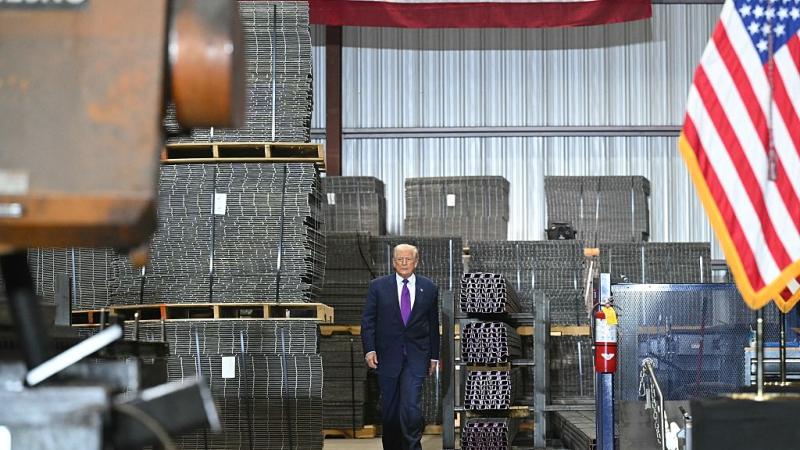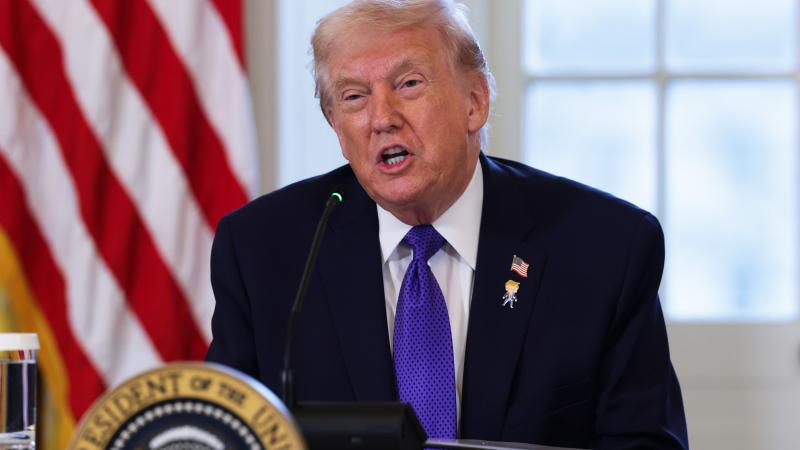Chinese brokerage of Iran-Saudi deal latest in string of power plays on world stage
China has inserted itself into theaters of vital American interest, such as the Russo-Ukrainian War, and even breached domestic U.S. airspace.
China shocked the world this week with the surprise announcement that it had brokered a deal between Iran and Saudi Arabia to resume normal diplomatic relations, dealing a significant blow to U.S. interests in the region.
The arrangement marked the latest is a string of ever-bolder moves by Beijing to further its aim of global hegemony at the expense of the United States. Apart from the Iran-Saudi agreement, China has inserted itself into other theaters of vital American interest, such as the Russo-Ukrainian War, and even penetrated domestic U.S. airspace.
A recent report from the U.S. intelligence community highlighted how, under President Biden's watch, major U.S. adversaries such as China, Russia, Iran, and North Korea have been preparing for meaningful operations at the expense of the U.S. and its allies. Much of China's recent activity has in some way furthered the interests of that increasingly cohesive cast of hostile actors.
Here are three recent examples of Chinese self-assertion on the global stage:
1. Negotiation of the Saudi-Iranian deal sees China assume the role of international arbitrator
The announcement of the agreement followed four days of talks in Beijing. Both Iran and Saudi Arabia committed to establishing embassies in the other nation and restoring normal relations.
The two nations have backed opposing factions in the Yemeni civil war, and some have suggested that the deal might result in de-escalation of that conflict. However, China's brokering of the agreement has global implications that go far beyond merely winding down a regional proxy conflict.
China has long sought to establish itself as a viable international arbitrator and respectable power on par with the United States. It's successful brokerage of a deal with Iran after the Biden administration repeatedly failed to achieve meaningful diplomacy with the Islamic Republic serves as a major diplomatic coup for Beijing and may further an effort to displace the U.S. in terms of influence in the region.
"It's too early to proclaim it anything other than a good first step," wrote Atlantic Council Senior Fellow Jonathan Fulton, according to The Hill. "It is, however, significant as China's first major foray into regional diplomacy. Beijing has been signaling since at least last January that it is willing to promote a non-US centered vision of the Middle East, and this is a sign of things to come."
Apart from the blow to U.S. prestige, the deal was doubly damaging to the U.S. as it strengthens relations between nominal U.S. ally Saudi Arabia and an implacable American adversary Washington has hoped to isolate on the world stage.
2. China's peace proposal for Russia and Ukraine inserts Beijing into the U.S.-European sphere
Amid the one-year anniversary of the Russian invasion of Ukraine, China unveiled a 12-point peace plan to resolve the conflict, even as the Biden administration and Ukraine remain unwilling to engage with Moscow.
Beijing's proposal would couple an end to Western sanctions on Russia with security guarantees for Moscow and Kyiv. The communist regime has also taken a firm stance against European and Ukrainian aspirations for "complete victory" on the battlefield, encouraging negotiation in defiance of Brussels and Washington.
Conversely, it has spent some diplomatic capital in Moscow, warning the Kremlin against a nuclear escalation in Ukraine while also encouraging Russia with talk of strengthening their alliance.
While the Chinese proposal is unlikely to gain traction in the immediate future amid a renewed Russian assault in the east of Ukraine, it nonetheless represents a bold insertion of Chinese Communist Party influence into a conflict at the heart of American foreign policy.
3. Aerial incursions by spy balloons highlight embarrassing gaps in U.S. surveillance
In February, the aerial passage of a suspected Chinese spy balloon over most of the United States attracted considerable national attention and prompted outrage over the apparent permeability of American airspace.
The balloon entered American airspace over Alaska before traveling through Canada and returning to the states via Montana. President Biden drew sharp public disapproval over his decision to wait to shoot down the balloon until it had cleared U.S. soil, downing the aircraft off the coast of the Carolinas.
The episode followed the shootdowns of multiple additional unidentified aircraft. U.S. officials have since asserted that the balloon's incursion was part of a larger surveillance effort orchestrated by Beijing. Moreover, military officials have since discovered that comparable incursions occurred during the Trump administration, with North American Aerospace Defense Command commander Air Force Gen. Glen VanHerck admitting the U.S. had "gaps" in its surveillance apparatus.
"I will tell you that we did not detect those threats," he said in February. "And that's a domain awareness gap that we have to figure out."
At least one lawmaker contended that the entire affair was intended to undercut American military readiness and expose the shortcomings of American leadership.
Speaking on the "Just the News, No Noise" television show last month, Utah Republican Rep. Chris Stewart highlighted the incursion's proximity to a planned visit by Secretary of State Anthony Blinken to China.
"This makes him look weak," he said at the time. "That's why they did it. That's why they did it again during the time that our secretary of state was supposed to be in China. It was their design and intention to make him look weak, and he unfortunately played into their hands."
China's recent aggressive moves on the world stage have strengthened its influence in its own bloc while highlighting the limits of American soft and hard power. In a recent appearance on "Just the News, No Noise," Former Lt. Col. James Carafano asserted that China's perception of American weakness had emboldened Beijing.
"[T]he Chinese see weakness in Biden," he said, "and every day they wake up and they're trying to figure out, 'How can I take advantage of that?' So I really look at the latest Chinese wolf warrior diplomacy not as a sign of things are spinning out of control, but as a sign of the Chinese are always looking at 'How can I put one over on Joe Biden?'"
Ben Whedon is an editor and reporter for Just the News. Follow him on Twitter.















